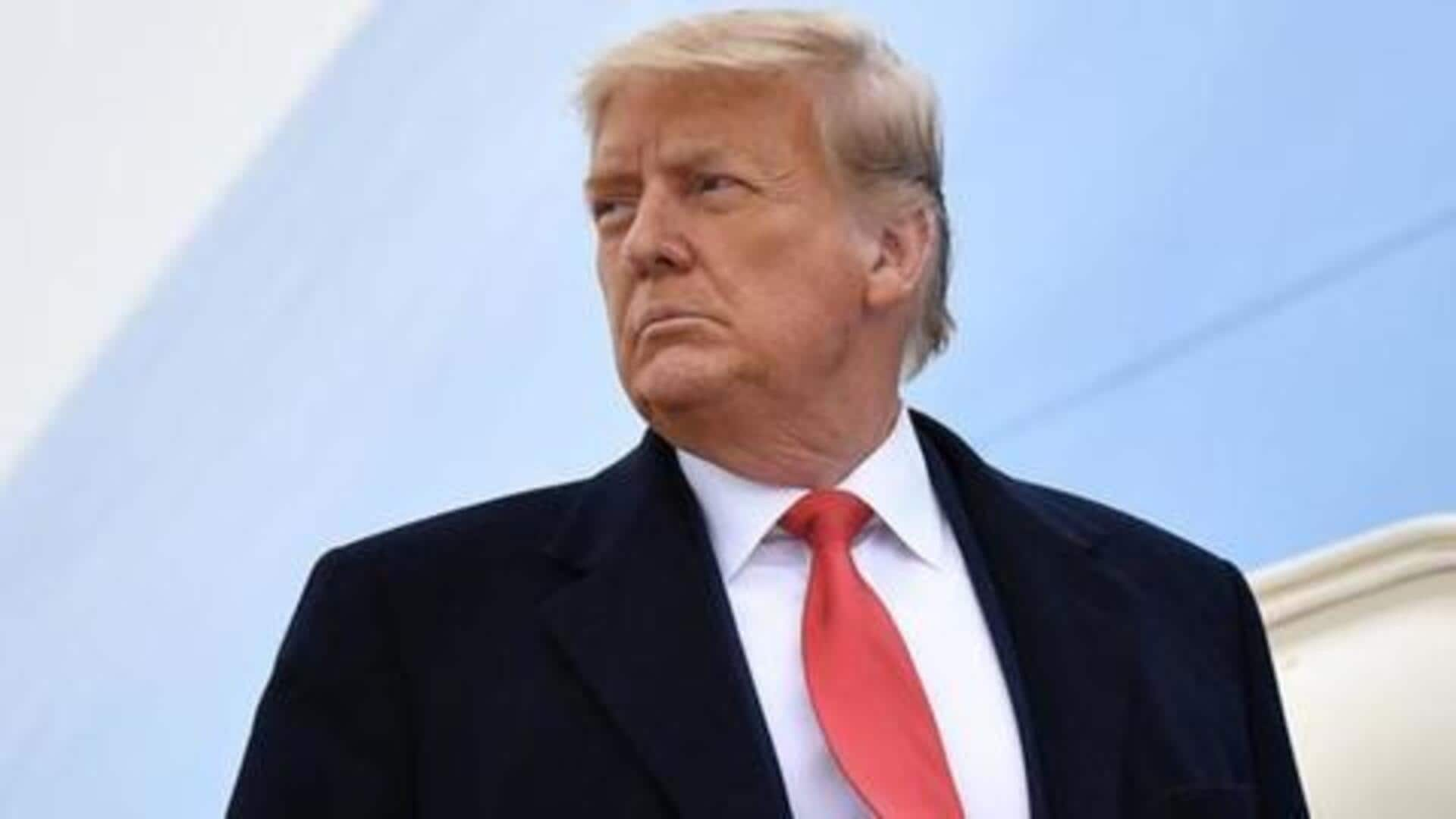
Trump suspends duty-free import rule: Major blow to global e-commerce?
What's the story
US President Donald Trump has signed an executive order suspending the de minimis duty-free treatment for all non-postal imports, regardless of origin or value. The move, effective from August 29, 2025, is aimed at curbing the abuse of trade loopholes by criminal organizations and foreign adversaries. The decision could significantly impact global e-commerce platforms like Amazon and Alibaba.
Rationale
National emergencies cited as justification
Trump justified the order by citing several national emergencies, including fentanyl trafficking from Canada and Mexico, synthetic opioid supply chains in China, and the US trade deficit. The White House claims that many shippers go to great lengths to evade law enforcement by hiding illicit substances in imports that go through international commerce.
Impact
New duty structures for all shipments
The suspension affects all shipments that previously qualified under the de minimis threshold (goods valued at $800 or less), except for items sent via the international postal network. Even postal shipments will now be subject to new duty structures, with specific per-item charges based on country-of-origin tariff rates. This move effectively ends the practice of informal entry for low-value imports via courier services like FedEx, DHL, or UPS.
Expansion
Global suspension follows earlier targeted actions against specific countries
The global suspension builds on earlier targeted actions against China, Mexico, and Canada in early 2025. In each case, the administration accused those governments of failing to curb the trafficking of synthetic opioids or enabling unfair trade advantages. The administration said adequate systems are now in place to process and collect duties on all incoming shipments and that the risk of illegal activity demands the uniform application of tariffs.
Repercussions
E-commerce platforms and global retailers face higher costs and hurdles
E-commerce platforms and global retailers relying on the de minimis provision will face higher costs and logistical hurdles. Major players such as Amazon, Shein, Temu, and Alibaba could be affected by this move as low-value shipments from Asia have surged in recent years under this tariff exemption. The suspension takes effect August 29, 2025, for non-postal shipments, with postal shipments retaining limited de minimis privileges but facing duties unless exempted under separate laws.
Duty options
Critics argue de minimis exemption was abused
Transportation carriers will have to decide how they want to remit duties: via ad valorem rates or the fixed-per-item method. Customs may require additional bonds for shipments under $2,500 to ensure duty compliance. The de minimis threshold was originally intended to streamline customs clearance for low-value goods and avoid overburdening the system. However, critics have long argued that it allowed foreign sellers to undercut domestic businesses and enabled the smuggling of counterfeit or illicit goods.